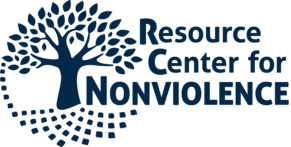What value will we celebrate this July 4th, independence or interdependence?
The Covid-19 virus, then US government failures to contain the virus, then police murder of George Floyd, then eruptions of outrage and protest in every corner of the country, all combine to take the wraps off deep wounds in the national body, wounds that were bleeding at the nation’s birth and bleed still.
The national birth defect is racism. Founding fathers and national politicians since 1776 closed curtains over the defect, naming the blinds “I am not racist,” “melting pot,” “freedom,” “individualism,” “assimilation,” capitalism,” “American exceptionalism.”
People of color see through the curtains every day. White people are beginning to pull them back with studies like White Fragility, Me and White Supremacy, How to Be an Antiracist, and Paul Ortiz’s An African American and Latinx History of the United States.
Ortiz writes about a Black preacher and revolutionary soldier named Lemuel Haynes, who wrote a rebuttal months after Jefferson’s claim of July 4, 1776 “that all men are created equal” in the Declaration of Independence. In “Liberty Further Extended: Or Free thoughts on the illegality of Slave-keeping,” Haynes declared “an African has Equally as good a right to his Liberty in common with Englishmen…Consequently, the practice of Slave-keeping, which so much abounds in this land, is illicit. (italics In original).
Founding fathers chose independence over equality — independent power for the small minority of white men who could claim it. The war for independence was a war for independence of the slave trade. Racial capitalism was protected by laws and Supreme Court decisions throughout US history. Even the devastating Civil War did not dent the independence of economic interests that morphed into Jim Crow laws, anti-immigrant laws, anti-labor laws, and global economic dominance enforced by the US military.
Dr. Ortiz tells histories of Black, Brown, Indigenous, Asian and European immigrants, who resisted the oppressive independent economic power structure, and brought healing to our people.
Now uprisings for Black Lives Matter in cities, towns and rural communities renew the promise of social movements—extending back to the Standing Rock campaign to prevent an oil pipeline, youth-led climate strikes and gun control movements, Occupy Wall Street, the Great American Strike, el gran paro Estadounidense May First 2006, massive antiwar movements in 2002, 1980’s and 1960’s, farmworker strikes and boycotts, hundreds of local campaigns for civil rights from 1954 to 1968, labor strikes over 150 years, the general strike of enslaved people that tipped the balance in the Civil War, and many more popular campaigns by impacted people over oppressive systems in US history.
Sometimes in my own life I feel the universe rip open, when a child is born, when a close friend dies. Hidden wounds are painfully uncovered. My true relationships with people and nature become clear, for a moment. This feels like such a moment for our society.
We see now the racist and capitalist defects in our nation. Let us gather our teams into operating rooms, put on our masks, and get to work repairing our national open wound, so that every person who walks on this land is recognized for the precious human being they are created to be, so that every freedom that any one enjoys will be enjoyed by all, beginning with food, housing, health care, jobs, living income, education, citizenship, access, respect, love. We want social equity that lives up to our inherent equality.
This July 4th, 2020, let us learn the impact of racism in US history and the impact of our words, deeds and systems on Black and Brown neighbors, on Indigenous First Nations, on Asian, African, Latinx, South Islander, Middle Eastern people, every one. Let us join in recreating our nation under a new banner of antiracism and interdependence.
Peter Klotz-Chamberlin is Secretary of the Board for the Resource Center for Nonviolence.
